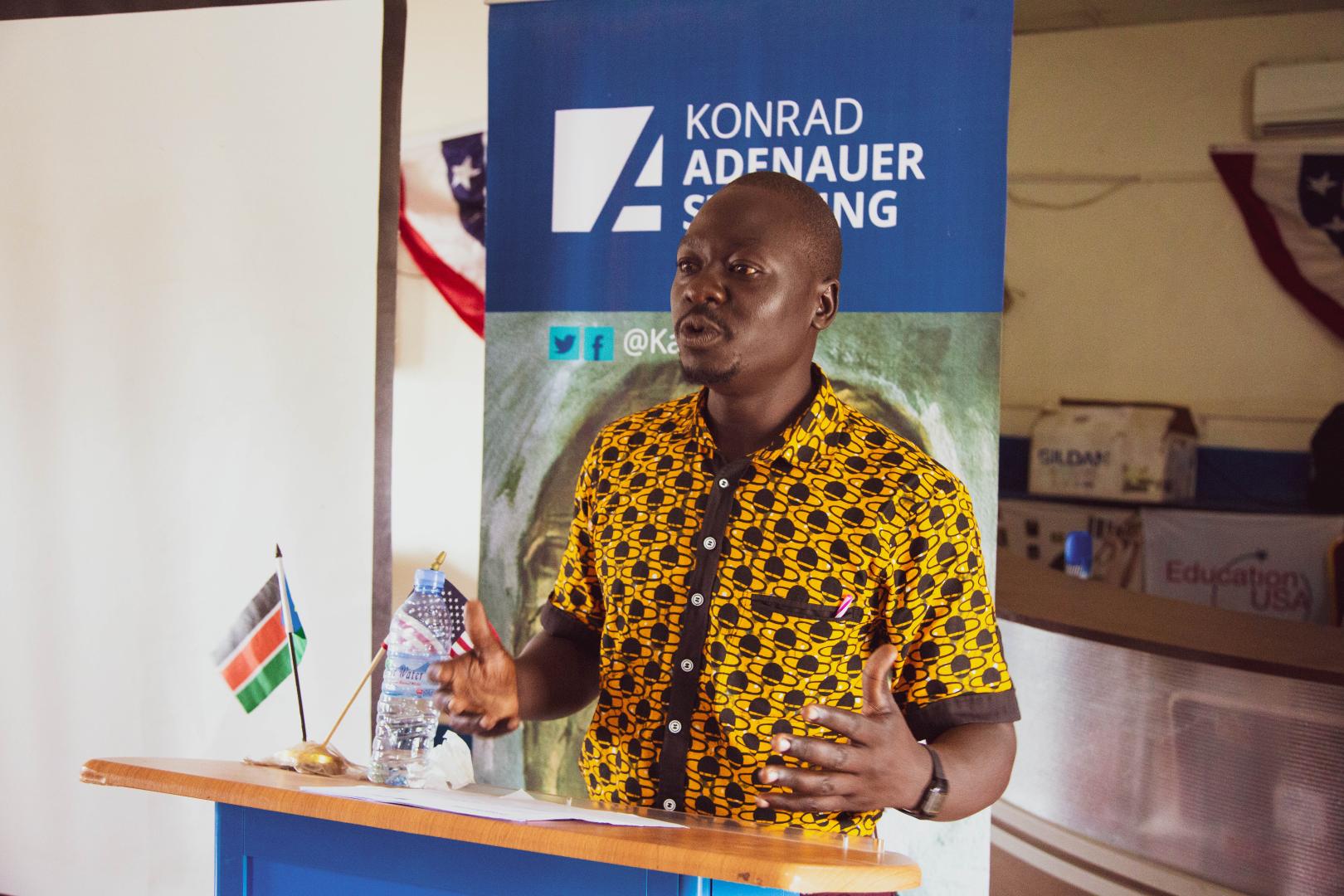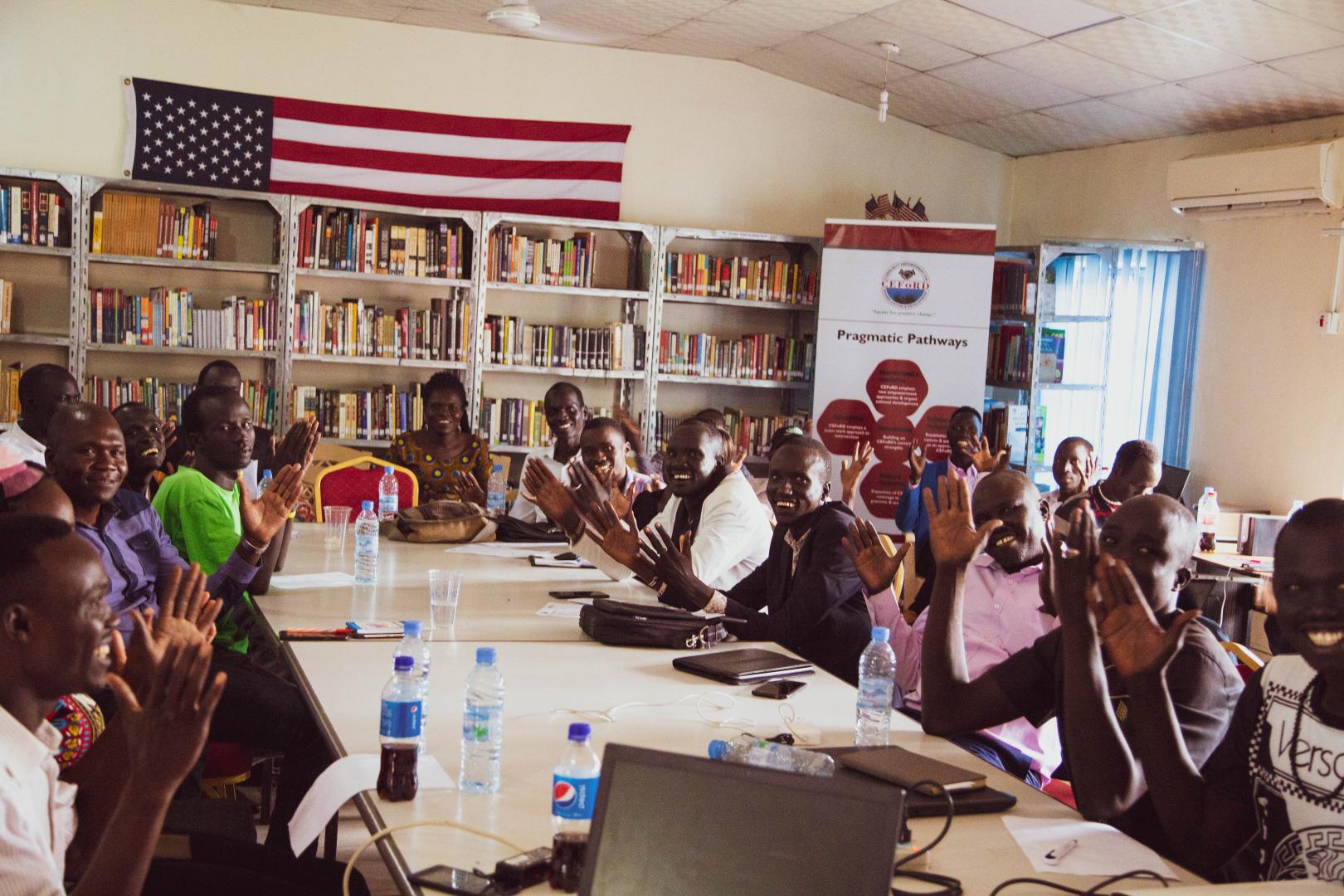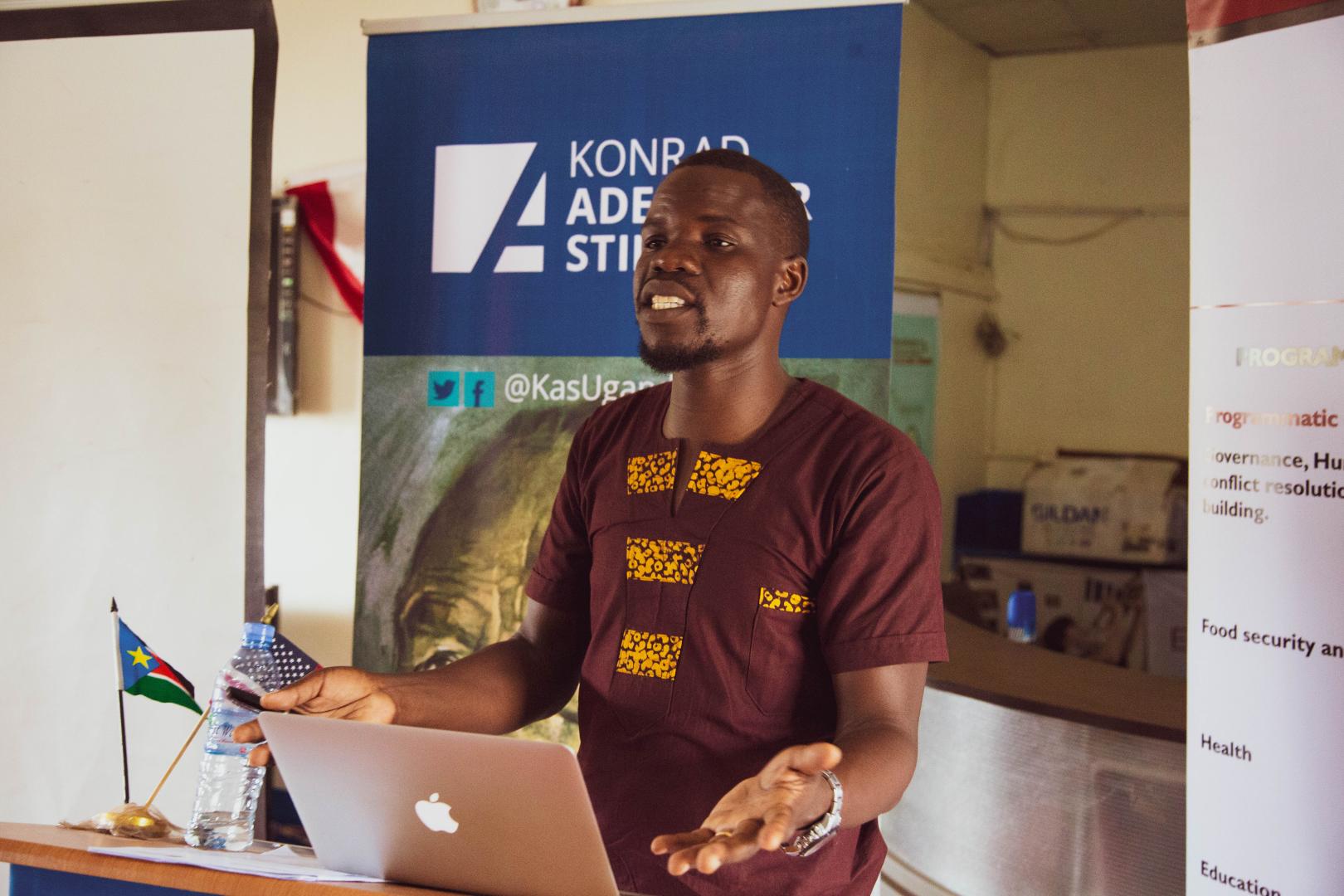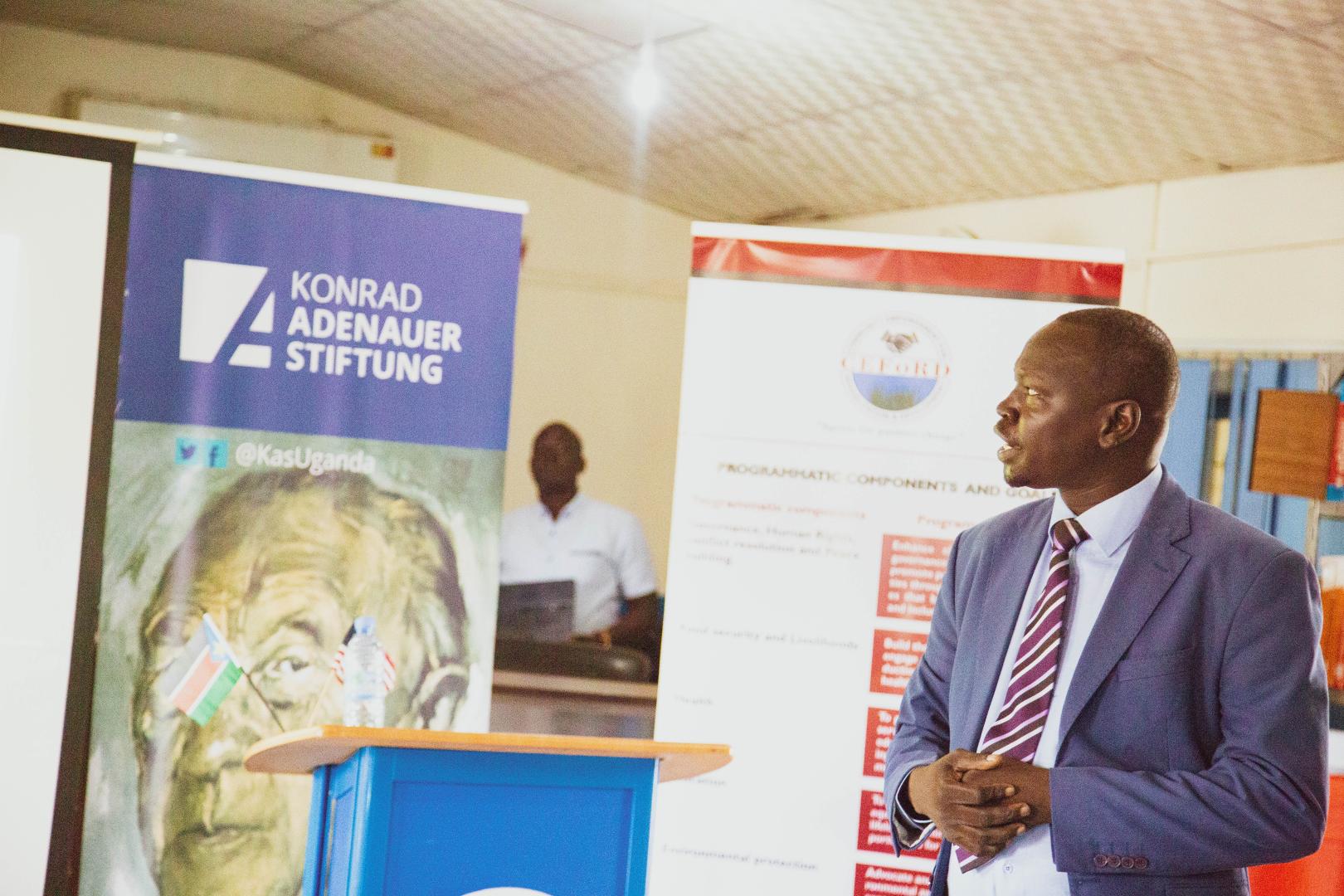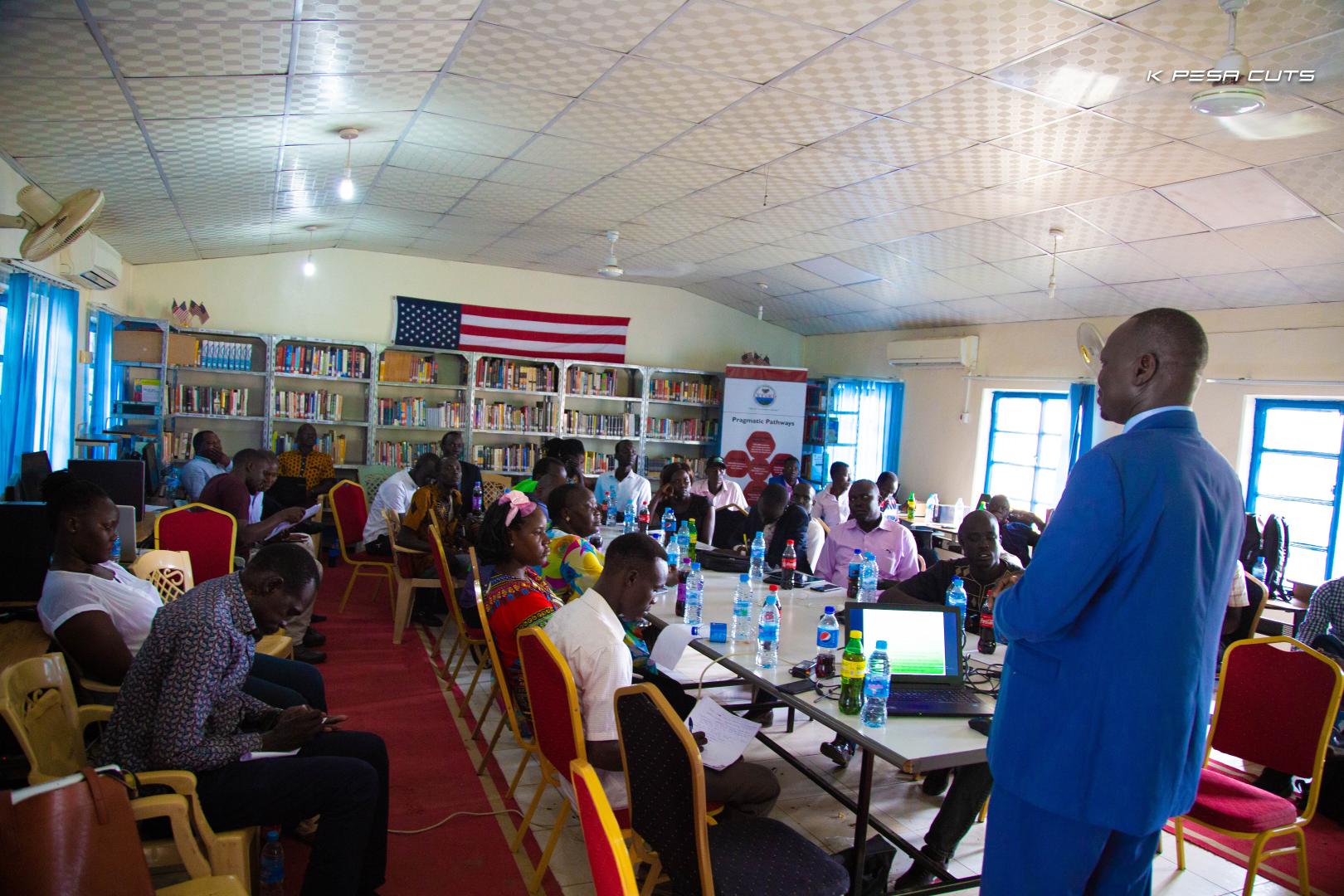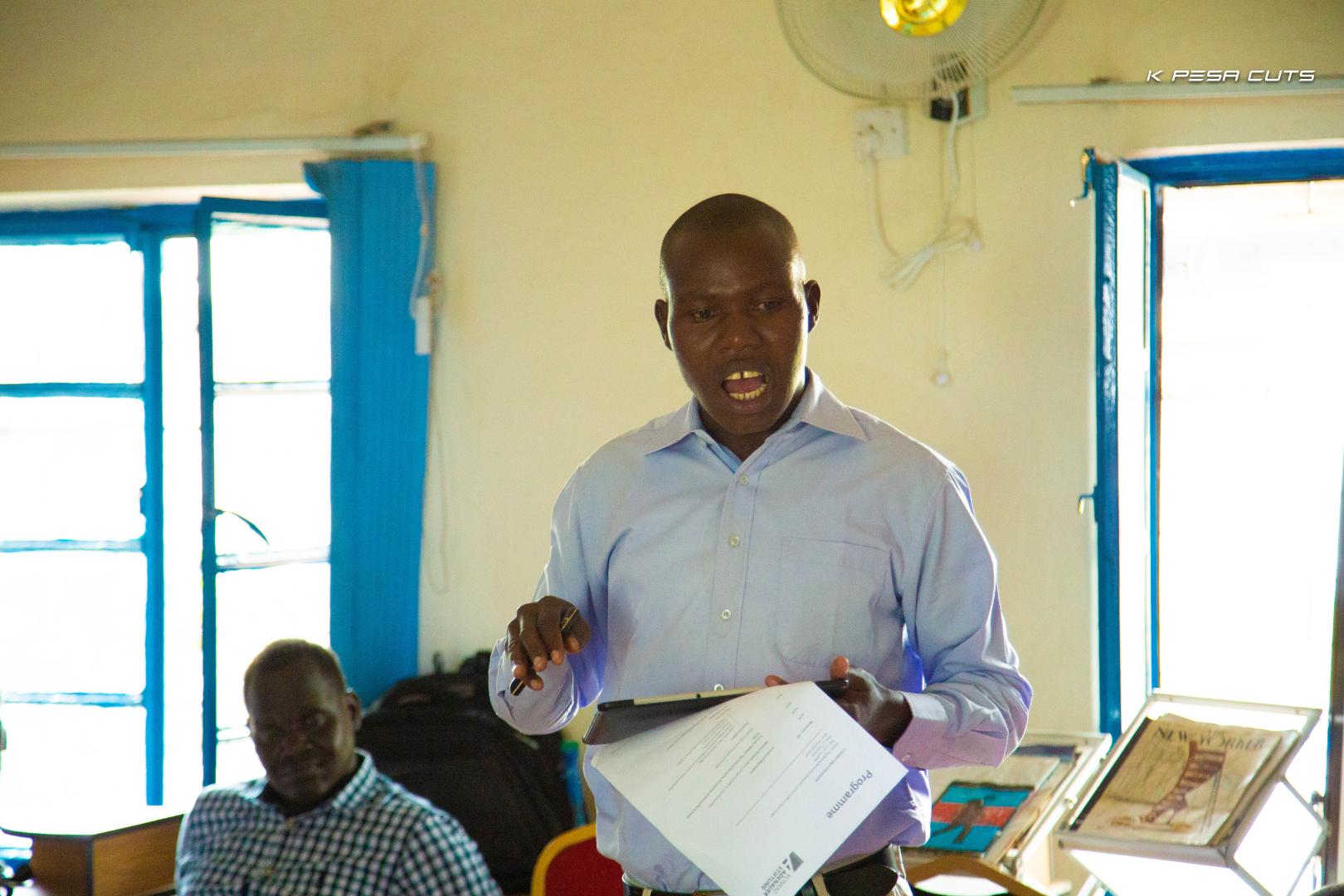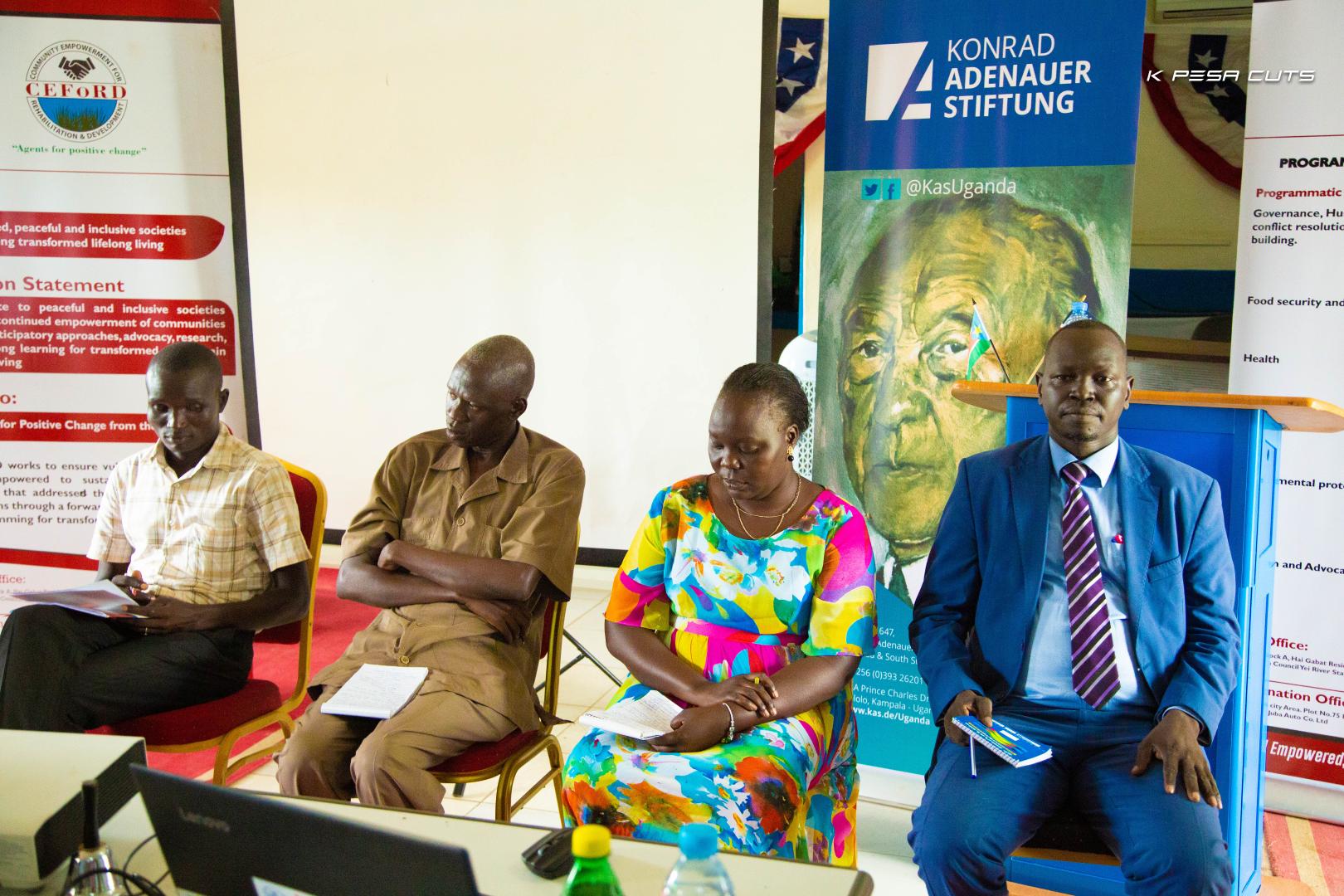“A country’s natural resource abundance or its scarcity doesn’t lead to a country’s development or underdevelopment”, noted Charles Onak, an Associate Prof. of natural resources at Upper Nile State University in South Sudan. “Instead, if managed and used well, it leads to dividends whilst mismanagement leads to curses” Onak emphasized.
This was on Friday September 27 th 2019 at the American Corner, University of Juba where a public dialogue was convened in partnership with Community Empowerment for Rehabilitation and Development (CEFoRD) under the theme “Natural Resources Dimensions of Conflicts in South Sudan”
The debate provided a space for panelists to share their insights on the perspective of the South Sudan natural resources and conflict dimensions basically for the participants to understand the imperatives of protecting their available resources and how it’s being used both positively and negatively.
During his keynote, Prof. Charles Onak who also doubles as the Chairperson of the South Sudanese Civil Society Coalition on Natural Resources mentioned petroleum, iron ore, copper, titanium, chromium, zinc, gold, hydropower and forests as some of South Sudan’s natural deposits. The country is also endowed with the longest river in Africa – the River Nile whose many tributaries provide the largest fresh wetlands in the world – the Sudd. Generally, the country’s swamps, floodplains and grasslands contain a rich biodiversity of flora and fauna.
However, the existence of many challenges make the utilization of these natural resources to fuel sustainable development. One of the panelist Jackline Nasiwa noted that illegal mining and logging is a major threat to natural resources in South Sudan. “This challenge is further compounded by the fact that the profiteers are from both opposition, government and foreign companies” she stated.
In fact, “natural resource is fueling conflict in the country” argued Prof. Onak. “Revenues accruing from the exploitation of these natural resources are used not only for sustaining armies of the warring factions but also for personal enrichment and building political support” Onak posited.
Another panelist, Okot Mathew from the Catholic University of South Sudan also supported this claim noting that since South Sudan suffers from natural resource curse, attempts that are being made to change this direction shouldn’t be discouraged by the top leadership of the country. For instance, he gave an example about a case in Eastern Equatoria where one army commander and the local community arrested a lorry loaded with timber but they were threatened and ordered to release the vehicle or report to Juba for punishment. Such unlikely actions according to Okot mean that “there are individuals at the top level who directly instruct or give deals to foreign companies to illegally log our timber”.
This was on Friday September 27 th 2019 at the American Corner, University of Juba where a public dialogue was convened in partnership with Community Empowerment for Rehabilitation and Development (CEFoRD) under the theme “Natural Resources Dimensions of Conflicts in South Sudan”
The debate provided a space for panelists to share their insights on the perspective of the South Sudan natural resources and conflict dimensions basically for the participants to understand the imperatives of protecting their available resources and how it’s being used both positively and negatively.
During his keynote, Prof. Charles Onak who also doubles as the Chairperson of the South Sudanese Civil Society Coalition on Natural Resources mentioned petroleum, iron ore, copper, titanium, chromium, zinc, gold, hydropower and forests as some of South Sudan’s natural deposits. The country is also endowed with the longest river in Africa – the River Nile whose many tributaries provide the largest fresh wetlands in the world – the Sudd. Generally, the country’s swamps, floodplains and grasslands contain a rich biodiversity of flora and fauna.
However, the existence of many challenges make the utilization of these natural resources to fuel sustainable development. One of the panelist Jackline Nasiwa noted that illegal mining and logging is a major threat to natural resources in South Sudan. “This challenge is further compounded by the fact that the profiteers are from both opposition, government and foreign companies” she stated.
In fact, “natural resource is fueling conflict in the country” argued Prof. Onak. “Revenues accruing from the exploitation of these natural resources are used not only for sustaining armies of the warring factions but also for personal enrichment and building political support” Onak posited.
Another panelist, Okot Mathew from the Catholic University of South Sudan also supported this claim noting that since South Sudan suffers from natural resource curse, attempts that are being made to change this direction shouldn’t be discouraged by the top leadership of the country. For instance, he gave an example about a case in Eastern Equatoria where one army commander and the local community arrested a lorry loaded with timber but they were threatened and ordered to release the vehicle or report to Juba for punishment. Such unlikely actions according to Okot mean that “there are individuals at the top level who directly instruct or give deals to foreign companies to illegally log our timber”.
On ensuring accountability within the natural resource sector in South Sudan, Dr. Moro Leben another panelist added that the security dimension to natural resources questions makes it almost impossible for credible research and recommendations to be given to ensure effective utilization of such resources. “How do you do you do investigations on natural resource mismanagement when someone is sitting there ready to release a bullet to your head” Dr. Moro wondered. To this end, he hinted that “there first and foremost the need for a peaceful environment that will enable investigation into issues of natural resources exploitation and its impact on the environment and people surrounding them”.
During the discussion some recommendation were made to better manage South Sudan’s resources where both the livelihoods and future of the country depends. Among such recommendations was the need to empower communities to start demanding for accountability from the state governments especially on resources management; sensitizing community leaders on sustainable natural resource management; involving the local community leaders in decision making processes when exploiting natural resources resources. In addition, South Sudan need to institute an environmental management agency to oversee issues related to the natural resource development in South Sudan.
In his closing remarks, Ojok Okello Programme Officer at the Konrad Adenuaer Stiftung (KAS) noted that is healthy for all society to discuss difficult questions and uncomfortable questions around pertinent issues like natural resource question because the survival of a country and the prosperity of its people depends on it. Additional Reporting by Samuel Sebit.
During the discussion some recommendation were made to better manage South Sudan’s resources where both the livelihoods and future of the country depends. Among such recommendations was the need to empower communities to start demanding for accountability from the state governments especially on resources management; sensitizing community leaders on sustainable natural resource management; involving the local community leaders in decision making processes when exploiting natural resources resources. In addition, South Sudan need to institute an environmental management agency to oversee issues related to the natural resource development in South Sudan.
In his closing remarks, Ojok Okello Programme Officer at the Konrad Adenuaer Stiftung (KAS) noted that is healthy for all society to discuss difficult questions and uncomfortable questions around pertinent issues like natural resource question because the survival of a country and the prosperity of its people depends on it. Additional Reporting by Samuel Sebit.



